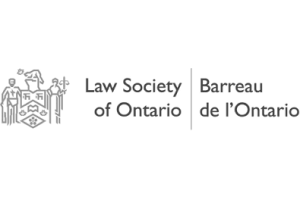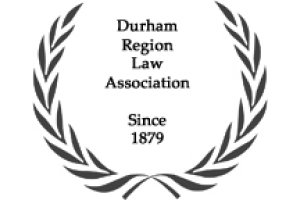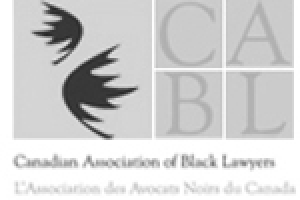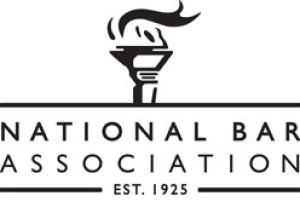Estate Planning FAQs
Estate Planning
- My Mother Is 80 and Does not Have Any Assets. Why Does She Need a Will?
- What Is a Power of Attorney?
- What Is the Difference Between a Power of Attorney for Property and Power of Attorney for Personal Care?
- When Does a Power of Attorney Become Effective?
- What Are the Common Misunderstandings About Attorney Appointments?
- What Are the Benefits of Having a Will?
- What Is Involved in the Will Planning Process?
- When Should I Change My Will?
- What Factors Should I Consider When Picking an Executor for My Estate?
- I Want to Name My Adult Child as My POA (Power of Attorney) but I am Capable of Managing My Own Affairs for Now. What Should I Do?
- My Mother Has Been Forgetful. I am Worried About Her Taking Care of Herself. What Can I Do About It?
- My Spouse Travels a lot for Work. What Document Do I Need to Deal With Events That Arise in Their Absence?
- My Children are Now 18. I am Worried That Information Will Not Be Given to Me by the Bank and the Family Doctor Now That They are Considered Adults. Is There a Way Around This Problem?
- I Do Not Want to Be Kept Alive Should I Become Brain Dead as a Result of an Accident. How Do I Ensure My Wishes are Known?
- What Decisions Do I Need to Make Before My Will Can Be Drafted?
- What is a Codicil?
- What does the term Intestate mean?
- What happens to your assets if you do not have a Will?
- Does an executor assume responsibility for the debts of the decedent?
** The information in this document is not intended to replace the advice of a lawyer or accountant and should not be relied upon as such.
My Mother Is 80 and Does not Have Any Assets. Why Does She Need a Will?
Even with no financial assets, it is important to have a Will to name a person who will be entrusted with the estate, including the closing of accounts. Even accounts with nothing owing or a bank account with a zero balance will require the institution to check the authority of the person making the request. A Will is the easiest, and least expensive, way to grant that authority. Estates (big or small) need to file final tax returns, which is also the responsibility of the executor.
A residual beneficiary for any funds not needed to pay estate bills is another way to keep things tidy.
What Is a Power of Attorney?
A Power of Attorney is a written document by which an individual (the grantor) appoints someone (the Attorney) to act on their behalf concerning financial and/or personal care matters while the Grantor is alive.
What Is the Difference Between a Power of Attorney for Property and Power of Attorney for Personal Care?
There are two separate documents reflecting different responsibilities. (1) A Power of Attorney for Property allows your Attorney to deal with all financial matters concerning your assets. (2) A Power of Attorney for Personal Care allows your Attorney to deal with all your related health care issues including treatment decisions and long-term care residence placements. The Attorney may or may not be the same individual depending on your needs and their abilities.
When Does a Power of Attorney Become Effective?
A Power of Attorney for Property is valid upon execution unless otherwise stated in the document. Since Powers of Attorney are granted as a precautionary step, few people want them activated immediately. The documents should be held by a trustworthy person or trust company (if they are named as the Attorney) and you must give explicit Instructions on when the named Attorney can commence to act under its authority. The Power of Attorney document itself can contain details about the activation mechanism. The most common reason for a Power of Attorney to become active is a loss of mental capacity on the part of the grantor to handle their financial affairs.
What Are the Common Misunderstandings About Attorney Appointments?
Grantors are sometimes not aware of the extensive duties they are placing upon their named Power of Attorney from both a time and emotional aspect. Likewise, those agreeing to act as a Power of Attorneys can be surprised by the extent of what they must undertake when taking over someone’s finances or obtaining placement for long term care. In some cases, they have accepted not anticipating that the Power of Attorney would ever be activated.
What Are the Benefits of Having a Will?
A properly drafted Will provides peace of mind and control. It gives you comfort in knowing that your wishes will be respected after your death. It ensures that support for family members, dependents or charities that you wish to support occurs. It gives you control over the details of the distribution of your estate and makes it easier and often less expensive to administer your estate and reduce strain on your family at a difficult time. It also allows you to appoint the most effective representative, either an individual or a trust company, to handle your estate. The naming of a guardian for your minor children is important, particularly if you have family members you feel would not be suitable for your child to be cared for in your absence.
What Is Involved in the Will Planning Process?
Information gathering on assets, wishes, family obligations and needs summarized in a document we provide to you when you make an appointment to discuss will preparation. We will review these details with you and discuss tax and legal issues. We will then create a Will plan. After your wishes are confirmed the final document will be drafted on your behalf and you will attend to sign it.
When Should I Change My Will?
With any major life event you should review your current Will to see if it takes what is going on in your life into consideration. If you have a Will, it will become invalid if you get married, unless it was made in contemplation of marriage and that is specifically addressed in the document.
Separation, Divorce and changes in financial circumstances or the nature of your assets changes significantly may also mean your Will should be changed. Other factors such as moving to another country, assets (especially real property) are acquired outside of Ontario, or an executor named in the Will dies or is no longer able to carry out their duties may also require your will to be updated.
It may be that the circumstances of the beneficiaries’ change (marriage or divorce), or you wish to make provision for additional people (grandchildren born after your current Will was signed) or charities that you would like to see receive money from your estate.
Should you be expecting a child you need to review your current Will as it may need to be updated.
Wills can be valid years, if not decades, after they are signed. There is no expiry date so it up to you to review it and update it as your situation evolves.
What Factors Should I Consider When Picking an Executor for My Estate?
We recommend this four-step approach.
Proximity – within the Province of Ontario means that no Executor bond will be required to be posted. Being in the area to visit the lawyer, bank and your real property helps too.
Trustworthiness – this person will oversee distributing your life’s savings and personal property to your beneficiaries. Pick the person whose actions you believe would be in keeping with your values.
Willingness – this is a big job, even with a small estate. Naming an alternate executor is wise so if your named Executor needs to step away due to unforeseen circumstances (like poor health), a backup plan is ready to go.
Assertiveness – this person needs to be able to advocate for your estate and not for any single beneficiary. Dealing with banks, lawyers, insurance companies and Revenue Canada takes persistence.
I Want to Name My Adult Child as My POA (Power of Attorney) but I am Capable of Managing My Own Affairs for Now. What Should I Do?
You should plan for possible mental incapacity by having a lawyer draw up a Power of Attorney document to contain a “trigger” so that in the event it becomes necessary for someone to take over, it has already been decided by you how that will occur. You can request that a physician that you know, and trust, perform an assessment if your capacity becomes questionable.
My Mother Has Been Forgetful. I am Worried About Her Taking Care of Herself. What Can I Do About It?
There is a route to have capacity assessed. Read about the process here if your parent does not have a Power of Attorney that provides guidance for this circumstance.
My Spouse Travels a lot for Work. What Document Do I Need to Deal With Events That Arise in Their Absence?
A Power of Attorney for Property will enable you to deal with any financial issued while they are unavailable.
My Children are Now 18. I am Worried That Information Will Not Be Given to Me by the Bank and the Family Doctor Now That They are Considered Adults. Is There a Way Around This Problem?
This requires your child to sign a Power of Attorney for Property (to deal with the bank) and a Power of Attorney for Health (to get or give information from the family doctor or hospital). While this may seem like too much expense, given they are young and healthy, if they are setting off to see the world on a gap year, it is one of those trip preparation steps that could save a lot of hassle, should a credit card be stolen, or an accident occur.
I Do Not Want to Be Kept Alive Should I Become Brain Dead as a Result of an Accident. How Do I Ensure My Wishes are Known?
Your Power of Attorney for Health can incorporate a clause that sets out your wishes. This will help your Attorney in the event that difficult decisions need to be made. This could be as simple as a DNR (do not resuscitate) request, or as complicated as an end-of-life directive. If you have strong feelings about these issues, you need to put them in your Power of Attorney for Health.
What Decisions Do I Need to Make Before My Will Can Be Drafted?
Who to you name as your Executor is the big one. See our answer above. Naming a guardian for your minor children is equally important. Who would be best to take on your child/children is something only you can decide. Providing for them financially through life insurance and investments is prudent but not necessary to proceed with a Will.
After that it becomes only, who do you want to receive any assets you have accumulated to this point in your life. There are rules about spousal entitlement, but apart from that who you choose to leave your assets to is your choice.
What is a Codicil?
If you have a Will that remains correct, but needs a small tweak to bring it up to date, a document called a Codicil can be signed. This document adds or changes an item such as the addition of a grandchild that had not yet been born at the time you signed your Will, or your alternate executor has had serious health issues and could no longer step in if required. Generally, a Codicil is less expensive than a new Will.
What does the term Intestate mean?
Intestate is the tern we use to refer to a person who died without a will.
If a person’s Will is deemed invalid for any reason, this term would also be used to signify that there are no documents in place to guide the next of kin.
What happens to your assets if you do not have a Will?
If a person dies intestate, their assets will be dispersed in accordance with the table of consanguinity. This table lists your kin in order of closeness to the deceased starting with husband/wife followed by children. If a person has neither of those, parents are the next in line, then siblings. After that it becomes more complicated but the important point to remember is blood relative relationships, not through marriage.
Does an executor assume responsibility for the debts of the decedent?
The short answer is no.
The debts incurred by the deceased are the first things that must be paid before any funds go to any beneficiaries named in the Will. If there are insufficient funds to fully pay outstanding bills, credit cards or mortgages that is not the responsibility of the executor unless those debts were incurred jointly with the executor. If the joint debt holder is another person, those debts become their responsibility. If debts are greater than estate assets, beneficiaries will receive nothing.
This may be easier to understand if we give an example. If you were an employee of a corporation suffering from financial difficulty or cash flow problems, you would never believe their debts are your responsibility because they employ you. As an employee your responsibility may be to negotiate the amount of money to satisfy the debt, but it’s not your debt, you are just the manager. As executor you are an employee of the estate and have the right to manage the debt without monitory burden.
Often estate creditors (particularly credit card companies) will hassle the executor in an attempt to collect on the debt, demanding payment from them personally. If the estate does not have the funds to settle the accounts, it does not fall to the executor to make the payments. Simply inform the caller that the estate does not have funds to settle the account; it will need to be written off. This may take numerous repetitions, and possibly a letter from the estate lawyer.
Order of estate disbursement are:
- Debts, including taxes to Revenue Canada;
- Specific bequests;
- Beneficiary payments once a final accounting has been provided and releases are signed.








